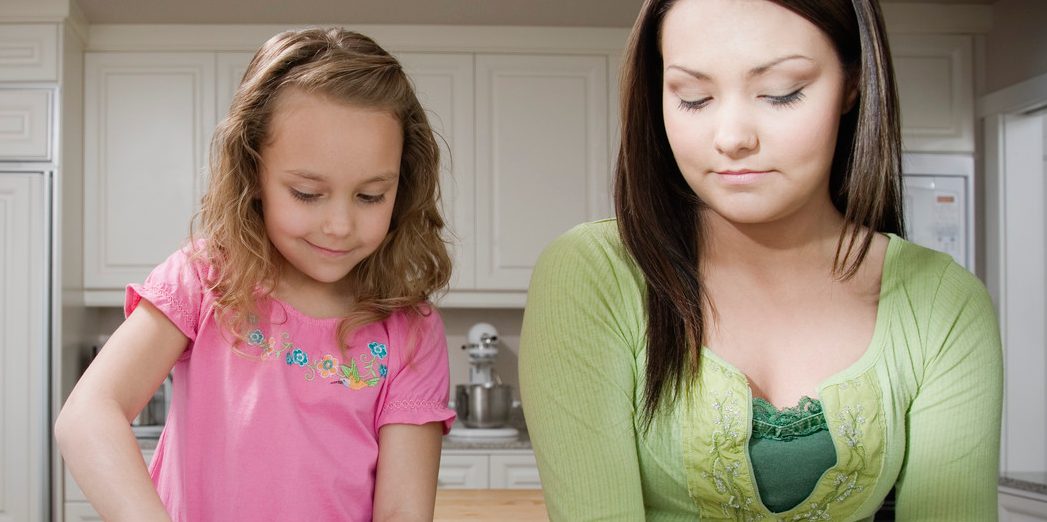How to Teach Kids to Clean

Children who help their parents clean up do better socially and in school. Here’s how to teach your kids to clean and be helpful around the house.
At age 6, Sierra Paolicchi had learned to bring her dirty plate to the sink after a meal and put her dirty clothes in the hamper. At 7, she began putting her toys away. A year later, she and her little brother, Leo, were helping their mother do the laundry: sorting colors, adding the detergent, and pressing the buttons, reported Nashville Mom Scarlet Paolicchi, founder of “Family Focus Blog.”
YOU MIGHT ALSO LIKE: How to Help a “Sluggish,” Forgetful Child
Kids do chores do well in school and life
According to a survey from the makers of the chore app BusyKid, more than 90 percent of parents say they did chores as a child, but only 66 percent of them regularly assign chores to their own children. That’s a big mistake, says developmental psychologist Richard Rende. is co-author of “Raising Can-Do Kids: Giving Children the Tools to Thrive in a Fast-Changing World.” Kids with significant chores do better socially and in school through their teen years, studies suggest, and they become happier, more successful adults. Parents may have lost sight of the value of chores because of the many pressures on children and the increasingly hectic American lifestyle, he argues. When overburdened parents let kids see how much they hate housekeeping, kids tend to resist chores as well.
At team at the University of Virginia’s Children’s Hospital in Charlottesville analyzed data from nearly 10,000 children entering kindergarten in the United States in 2010 to 2011. During kindergarten, parents reported the frequency with which their child performed chores. In the third grade, the children responded to a questionnaire probing their self-esteem and satisfaction and were assessed in reading, math, and science.
It turned out that the more chores children did in kindergarten, the more competent and satisfied they felt. The kids who did chores also had better math scores.
Keep chores age-appropriate
Toddlers can put things away, notes Gina Posner, M.D., a pediatrician at MemorialCare Orange Coast Medical Center in Fountain Valley, Calif. Roberta Golinkoff, professor of child development at the University of Delaware, suggests making clean-up time fun or an opportunity to talk.
With kids past the toddler stage, you might try inventing games. Set a timer to see who can pick up the most in a minute, or give your kids different tasks and have them compete to finish first. Put on music or pretend that toys are fighting back and have to be wrestled into their spots, Golinkoff suggests.
Posner recommends that elementary school aged children clean their own rooms, make their beds, and feed the dog. In middle and high school, they can help in the kitchen, unloading groceries and the dishwasher, for example. They might be responsible for cleaning rooms in the house as well.
Children can learn to see themselves as “helpers”
Some children are more helpful than others. Studies with twins suggest that a quarter to more than half of the giving impulse is inherited. But there’s plenty of room for parents to make a difference. Encourage your children to see themselves as “helpers.” In fact, using the word “helper” may be important for younger children. In one study, asking 3- to 6-year-olds to “be a helper” worked better than inviting them to “help.”
The children weren’t praised as “good” helpers, however, notes study co-author Alison Master, an assistant professor at the University of Houston. “There's a lot of research about how praising children for traits can have negative motivational consequences,” she says.
When kids go wrong, the consensus is also against a certain kind of scolding. Getting angry, withdrawing love, and making threats or punishing children induces shame, which doesn’t lead to improvement. Instead, parents can express disappointment, some research shows, explaining how the action affects others and how the child can fix things.
“Raising tidy kids is an ongoing process, and you can keep adding in new bits as they get older and more capable,” says Paolicchi. “The important thing to remember is that they need to be shown how to clean, and they need you to clean with them at least a few times to establish a routine and expectations.”
She can point to some success: By the age of 10, Sierra, and Leo, at 8, put their clothes away after the wash. Sierra even helped Mom fold. Leo learned his chores at a younger age because he likes to keep up with his sister. Paolicchi recalls that she wouldn’t let Leo carry his dirty dinner plate until she was sure he wouldn’t drop it. It took the Paolicchi siblings each about a month to learn to do each chore without reminders.
Don’t assume that pursuing demanding hobbies is more important for future success. Helpful people flourish, argues Adam Grant, author of “Give and Take: Why Helping Others Drives Our Success.” The youngest full professor at the prestigious Wharton School at the University of Pennsylvania, he is a superstar among management experts — and presumably a helpful fellow.
Updated:
April 27, 2022
Reviewed By:
Janet O’Dell, RN